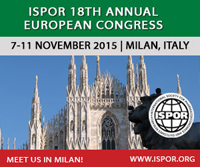The discovery of “sale amarissimo antifebbrile” (“bitter febrifugal saline”) by Bartolommeo Rigatelli, i.e. the origins of pharmacoeconomics
DOI:
https://doi.org/10.7175/fe.v9i1.211Keywords:
Salycilates, Chincona bark, History of pharmacology, PharmacoeconomicsAbstract
When considering the history of salycilates, it has to be underlined that a number of Italian scientists made significant contributions on such a topic. Among these, two pharmacists, Bartolommeo Rigatelli in Verona and Francesco Fontana in Lazise, carried out the first extraction of the active component of willow bark in 1824. Rigatelli named the drug “sale amarissimo antifebbrile” (“bitter febrifugal saline”). In his report some references of pharmacoeconomics are sketched out, thus indicating the attention that the Austrian government on the North Italian districts gave to the management policy. In fact, Rigatelli carried out an economic account of the use of salicin extracts as an antipyretic agent instead of the chincona bark which had been imported from South America at that time and was very expensive. This historical report gives rise to outline a brief history of pharmacoeconomics.Downloads
Published
2008-03-15
How to Cite
Marson, P., & Pasero, G. (2008). The discovery of “sale amarissimo antifebbrile” (“bitter febrifugal saline”) by Bartolommeo Rigatelli, i.e. the origins of pharmacoeconomics. Farmeconomia. Health Economics and Therapeutic Pathways, 9(1), 15–18. https://doi.org/10.7175/fe.v9i1.211
Issue
Section
Review (Economic Analysis)
License
Authors who publish with this journal agree to the following terms:
- Authors retain copyright and grant the journal right of first publication with the work simultaneously licensed under a Creative Commons Attribution-NonCommercial 4.0 License that allows others to share the work with an acknowledgement of the work's authorship and initial publication in this journal.
- Authors are able to enter into separate, additional contractual arrangements for the non-exclusive distribution of the journal's published version of the work (e.g., post it to an institutional repository or publish it in a book), with an acknowledgement of its initial publication in this journal. The Publication Agreement can be downloaded here, and should be signed by the Authors and sent to the Publisher when the article has been accepted for publication in this journal.
- Authors are permitted and encouraged to post their work online (e.g., in institutional repositories or on their website) prior to and during the submission process, as it can lead to productive exchanges, as well as earlier and greater citation of published work (see The Effect of Open Access).
- Authors are permitted to post their work online after publication (the article must link to publisher version, in html format)






